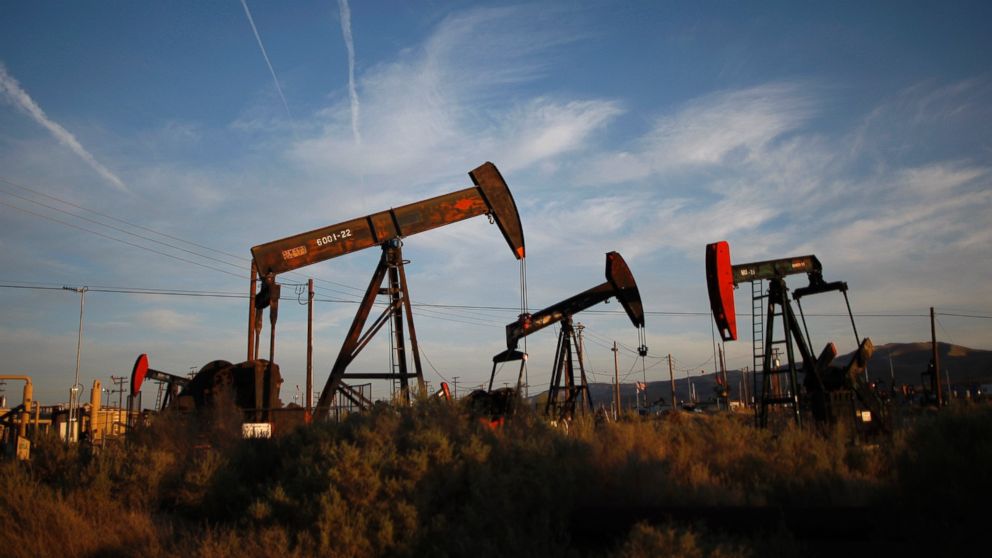California Shale Oil Bonanza Suffers Major Setback
California's shale oil payday has been overstated by 96 percent, say officials.

May 22, 2014 -- If you were celebrating U.S. energy independence, you can blow the candles out, for now. If you were a Californian clicking your heels at having two-thirds of all the shale oil in the lower 48 states, you can stop clicking. Why? The U.S. government says it has overestimated--by 96 percent--the amount of recoverable shale oil California has.
This spectacular revision, confirmed to ABC News by the U.S. Energy Information Administration (EIA), will be included in "Assumptions to the Annual Energy Outlook 2014," to be published by the administration in June.
In the 2013 Outlook, EIA figured California's Monterey Shale formation had 13.7 billion barrels recoverable with today's technology. The new Outlook thinks the state has 600 million barrels.
The news has invigorated the state's opponents to fracking, the process for extracting shale oil.
The revision, says Kassie Siegel, director of the Climate Law Institute, shows "there is no gigantic treasure trove that can be recovered any time soon. It underscores how little is known about these new and ever more damaging forms of fossil fuel extraction." The easy money and jobs that had been promised to California by fracking advocates, she tells ABC News, "have now been proved a myth."
Governor releases record California spending plan
State Senator Holly Mitchell, sponsor of anti-fracking legislation, tells ABC News: "The cost-benefit analysis of fracking in California has just changed drastically." Referring to the 96 percent reduction, she asks, "Why put so many at risk for so little? We now know that the projected economic benefits are only a small fraction of what the oil industry has been touting. There is no ocean of black gold that fracking is going to release tomorrow, leaving California awash in profits and jobs."
The crucial word there is "tomorrow."
Fans and foes of fracking agree there has been no reduction in the government's estimate of how much oil is in the Monterey Shale. It's one heck of a lot: Some 400 billion barrels in total resources. What's changed is the estimate of how much can be recovered now, with today's technology. And frackers have found present day technology to be not well suited to extracting California's shale oil.
Catherine Reheis-Boyd, president of the Western States Petroleum Association, tells ABC News that California geology is fundamentally different from that of Dakota's Bakken deposit. The Bakken is like a layer-cake, with flat pancakes of sedimentary rock. California's geology is more fraught and folded--already fractured, in effect, by the state's famously violent seismic activity. The fact that it is already fractured makes it harder (and for now, more expensive) to get at its oil.
Cleaner air could mean higher electric bills
The EIA says its increased appreciation for this geologic difference is responsible in large part for its reduction in its estimate for presently recoverable oil.
Reheis-Boyd says her industry is confident new, economic technologies will be found, and the oil eventually exploited.
What might be the near-term political consequences of the government's spectacular revision?
Up to now, Gov. Jerry Brown has not been opposed to fracking, provided strong environmental protections were in place, California's SB4, which he backed, is now law and provides protections.
Kassie Siegel tells ABC News she expects the revised estimate to change Brown's position. "It's a no-brainer, now, for Brown to end fracking," she says. "That's the next logical step: Brown drops his support."
"This Week" transcript: Governor Jerry Brown
A spokesman for the governor, asked if his position had changed, said the governor would not be commenting. He directed ABC News to comments Brown had made Sunday in a TV interview: "Fracking, which is called well stimulation...has been going on in California for more than 50 years. So, we are not gonna shut down a third of our oil production and force more oil coming [in] from North Dakota."
Californians, he noted, "drive 332 billion--that's billion--miles a year, fed almost entirely by oil products, so we have got to start hammering at the demand, as well as the sources of fossil fuel."




